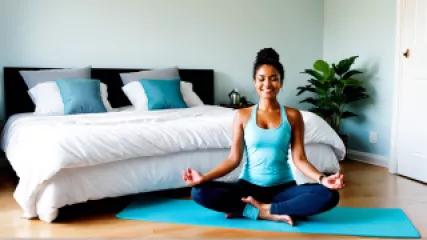Effective Self-Care Strategies for Managing Depression
Depression is a complex mental health condition that affects millions of people worldwide. It can have a profound impact on a person's daily life, making it difficult to function and enjoy activities they once loved. While there are various treatment options available for managing depression, self-care strategies play a crucial role in supporting overall mental well-being and coping with the challenges of this condition.
The Importance of Self-Care for Mental Health
Self-care involves taking deliberate actions to prioritize and nurture our physical, emotional, and psychological well-being. It is especially important for individuals dealing with depression as it empowers them to actively participate in their own recovery journey. Engaging in self-care practices can help reduce symptoms of depression, enhance self-esteem, and improve overall quality of life.
Research has shown that incorporating self-care into one's routine can have a positive impact on mental health. By implementing effective self-care strategies, individuals with depression can gain a sense of control over their lives, develop healthy coping mechanisms, and build resilience to better manage their condition.
Effective Self-Care Strategies for Managing Depression
Here are some evidence-based self-care strategies that can be helpful in managing depression:
1. Establish a Daily Routine
Creating a structured daily routine can provide a sense of stability and purpose. Start by setting regular waking and sleeping times, scheduling meals, and incorporating activities that promote well-being, such as exercise, hobbies, and relaxation techniques.
2. Practice Regular Exercise
Physical activity has been shown to have a positive impact on mental health. Engaging in regular exercise releases endorphins, which are natural mood-lifters. Aim for at least 30 minutes of moderate-intensity exercise most days of the week. Activities like walking, jogging, dancing, or yoga can be beneficial.
3. Prioritize Sleep
Getting adequate sleep is crucial for mental health. Establish a consistent sleep routine by going to bed and waking up at the same time each day. Create a calming bedtime ritual, avoid screens before bed, and ensure your sleep environment is comfortable and conducive to restful sleep.
4. Practice Mindfulness and Relaxation Techniques
Mindfulness and relaxation techniques, such as deep breathing exercises, meditation, and progressive muscle relaxation, can help reduce stress and promote emotional well-being. These practices cultivate present-moment awareness and can be incorporated into daily routines.
5. Nurture Social Connections
Depression often leads to social isolation, but maintaining meaningful connections with others is essential for mental health. Reach out to friends, family, or join support groups to foster a sense of belonging and receive emotional support. Online support groups for depression can provide a safe space to connect with others who understand your experiences.
6. Engage in Activities You Enjoy
Depression can make it challenging to find pleasure in activities. However, engaging in activities you enjoy, even if you don't feel like it initially, can have mood-boosting effects. Explore hobbies, creative outlets, or try new experiences that bring you joy.
7. Maintain a Balanced Diet
Eating a nutritious, well-balanced diet can positively impact both physical and mental well-being. Include fruits, vegetables, whole grains, lean proteins, and healthy fats in your meals. Avoid excessive consumption of processed foods, sugary snacks, and caffeine, as they can negatively affect mood.
8. Set Realistic Goals
Setting achievable goals, both big and small, can provide a sense of purpose and accomplishment. Break larger tasks into smaller, manageable steps, and celebrate your achievements along the way. Remember to be kind to yourself and adjust your expectations when needed.
9. Seek Professional Help
If you are struggling with depression, seeking professional help is essential. A mental health professional can provide guidance, support, and evidence-based treatments tailored to your specific needs. They can help you develop an individualized self-care plan and explore additional resources, such as therapy or medication, if necessary.
"Self-care is not selfish. You cannot serve from an empty vessel." - Bryan Parker
Conclusion
Effectively managing depression requires a holistic approach that encompasses various treatment modalities, including self-care strategies. By incorporating these evidence-based practices into daily life, individuals with depression can support their overall mental well-being, reduce symptoms, and cultivate resilience. Remember, self-care is not a one-size-fits-all solution, so it is important to explore different strategies and find what works best for you. Reach out for support, prioritize your well-being, and remember that you are not alone in your journey towards better mental health.






